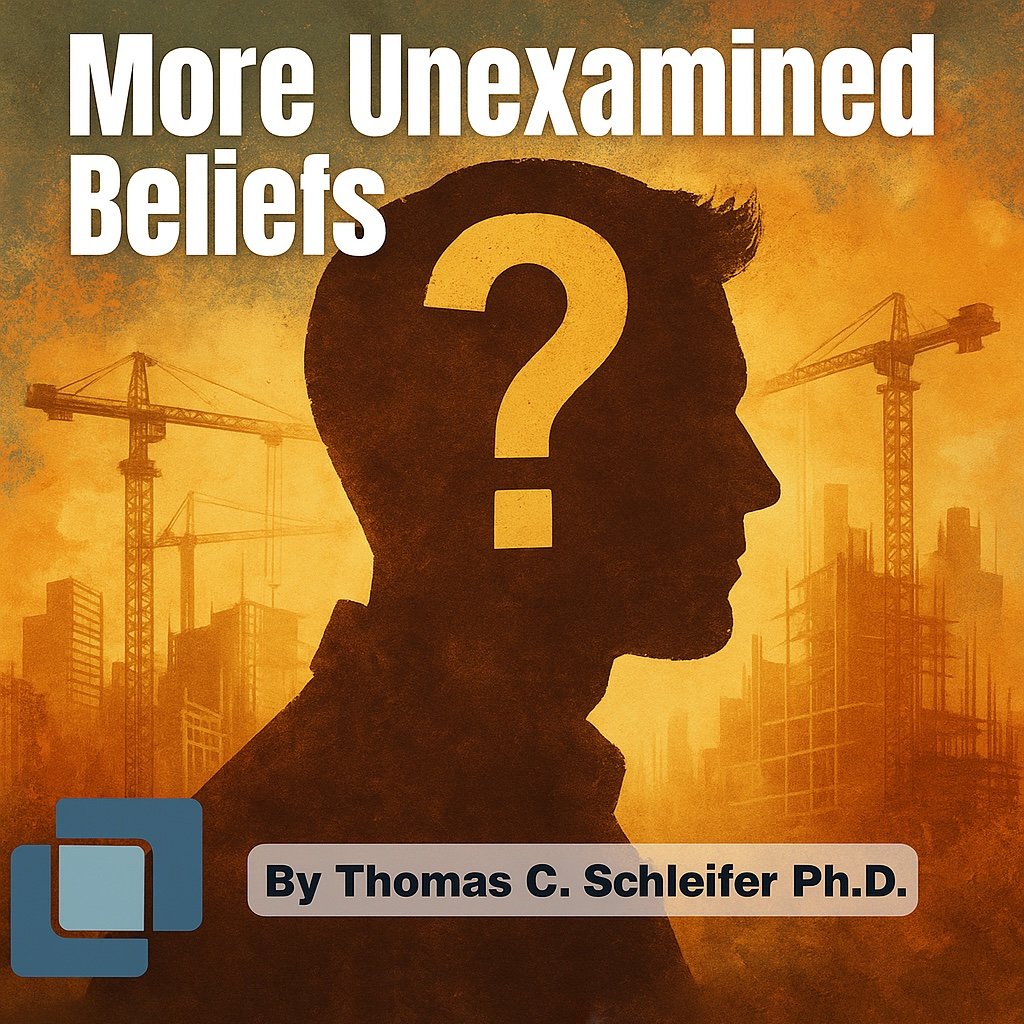
I introduced the concept of beliefs into my teaching about 20 years ago. I noticed during my years of research and countless interactions with contractors that there were a multitude of assumptions about the nature of the construction business out there that were simply not true. I also began to realize that some contractors were making business decisions based on these assumptions, and it was costing them money.
Take the belief I mentioned in last week’s blog: “You are going to lose money on some jobs. It’s just a fact of business in construction. The profitable jobs make up for it in the long run.”
That is one unexamined belief that is costing contractors money. Some bid low for marginal jobs that might lose money because they believe they need the cash flow to keep the business going. The belief is – “A marginal job is better than no job at all“.
However, my research into this phenomenon proved that even occasional unprofitable jobs have a cumulative negative impact on cash flow that can gradually sneak up on contractors and suddenly put them out of business.
Unexamined Beliefs
Unexamined beliefs are essentially assumptions we hold without consciously questioning them. They can have a significant impact on our businesses because they can lead to a distorted view of reality causing misinterpretation of business conditions and poor decisions. Unexamined beliefs can also prevent us from adapting to new information or challenging our own thinking.
Why Do We Firmly Hold to Beliefs? Because they help us feel secure. However, unexamined beliefs work against us when we look for information that supports them and ignore those that do not. Our beliefs about “the way things are” are not necessarily the way things are.
Unless we identify and investigate our mental models, we will continue to have a distorted view of reality, and we will be driven by beliefs that do us harm.
Unexamined Construction Beliefs
My research into this phenomenon uncovered the beliefs that have had the most detrimental effect on construction profits. See how many you hold.
- Growth is always good.
- Budgets are proforma and serve little management purpose.
- You must go low to get the business.
- A marginal job is better than no job at all.
- Unions are the enemy.
- Contracts are cast in tradition, so we have little chance to change the terms.
- Owners pay when they are good and ready.
- Financial statements are not useful management documents.
- Accountants know nothing about construction.
- We can build anything.
- Extras are a good solution to the cash flow problem.
- Percent complete estimates must always be exaggerated to make up for slow pay.
Unexamined Core Beliefs
Beliefs about the world around us impact how we run our business. These beliefs have a powerful impact on how we interact with our employees, vendors, owners, and bankers.
- Do I believe people are independent or interdependent?
If I believe people are independent then I probably think I have a duty to protect my individuality, protect my position, and get my point across in meetings. However, if I believe we are interdependent then I might choose to listen at least as much as I speak and consider the impact of decisions we make on others.
- Do I believe the Universe is friendly or indifferent or even hostile?
If I believe the Universe is friendly, I will likely think we should make decisions that help protect and take care of it. If I believe it is indifferent or hostile, I will favor decisions that lead to controlling it, using it, and protecting myself from it.
- Do I think the head, or the heart is the best part of a human being?
If I think the head is the best part of a human being, I will put forth my ideas rationally and argue for them with logic. But, if I think the heart is the best part, then I will likely focus on building relationships and appealing to people’s values and sense of caring as a way to find areas of agreement.
Examine the Unexamined
Most beliefs are unconscious and rarely explored. One way to investigate your most buried beliefs is to ask some fundamental questions.
- Why do I believe something to be true?
- What was the origin of this belief?
- What evidence can I sight to support this belief?
- Is this belief helpful or harmful to cash flow and profit?
Solution: Engage in conversations about beliefs with colleagues and team members and be open to alternative viewpoints.
Next week we’ll explore the impact of each unexamined construction belief listed above.
For more information on unexamined construction beliefs, read more at: BELIEFS
To receive the free weekly Construction Messages, ask questions, or make comments contact me at research@simplarfoundation.org.
Please circulate this widely. It will benefit your constituents. This research is continuous and includes new information weekly as it becomes available. Thank you.


